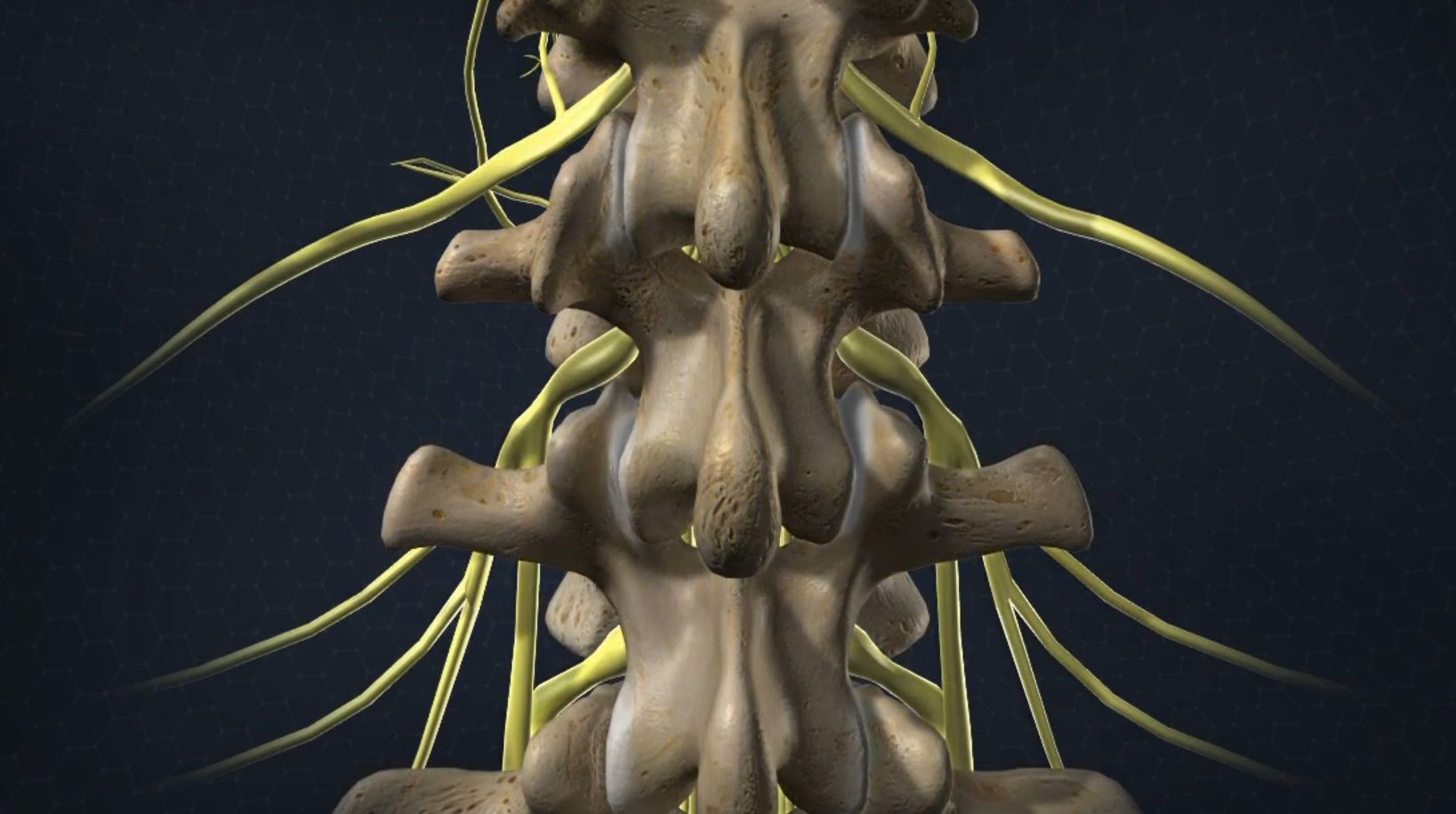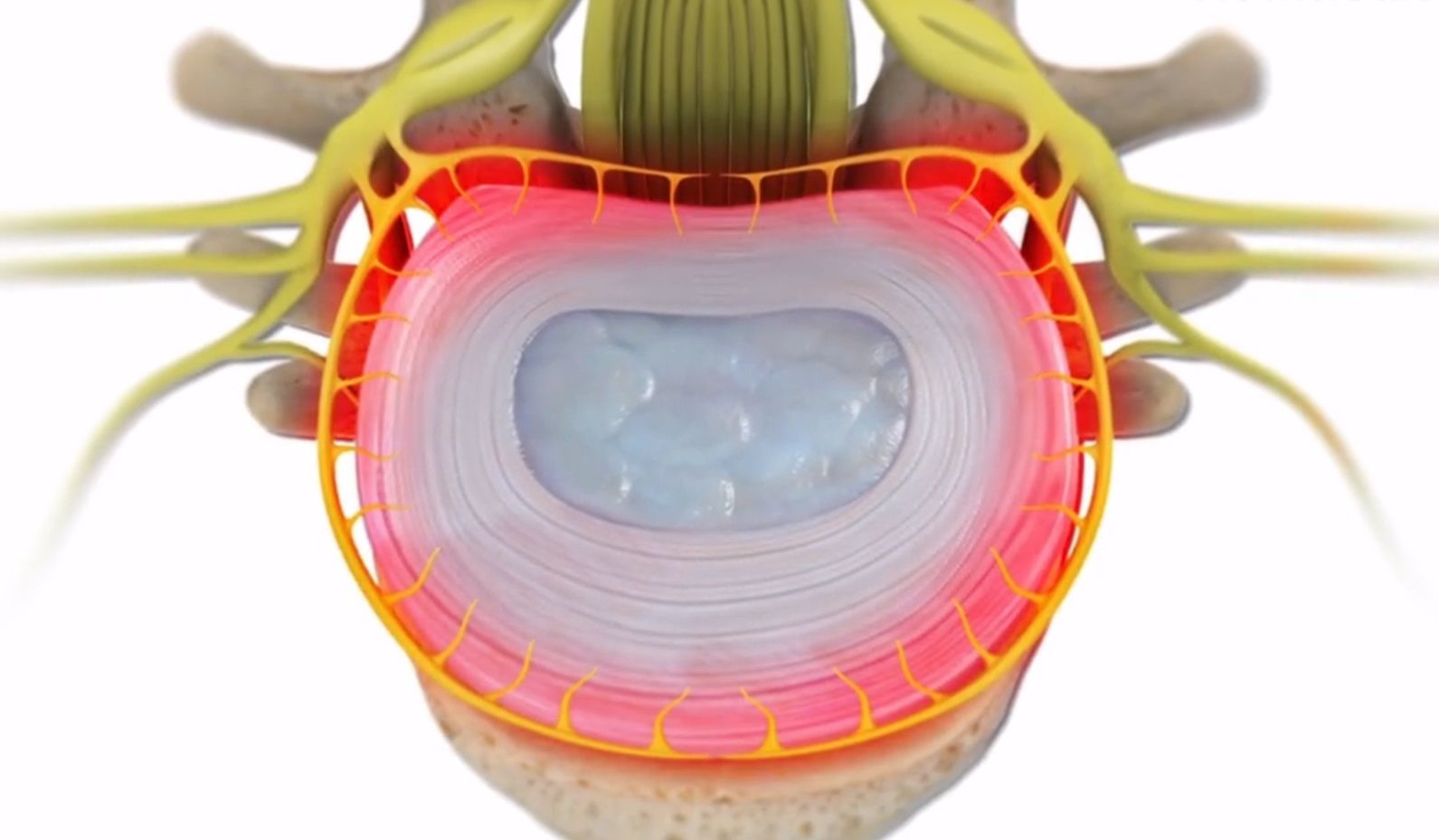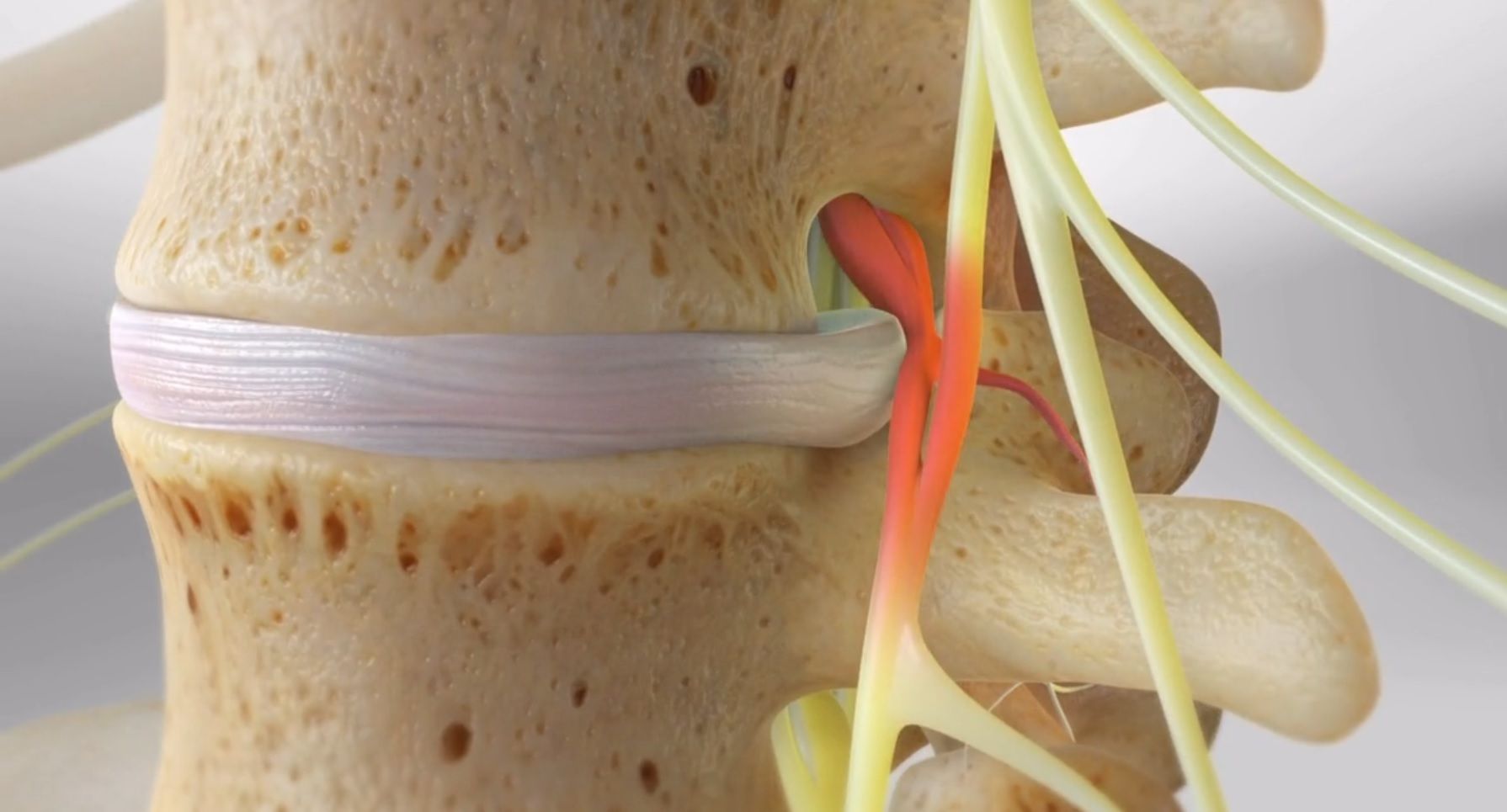Lumbar Radiculopathy (Sciatica)
This condition is an irritation or compression of one or more nerve roots in the lumbar spine. Because these nerves travel to the hips, buttocks, legs and feet, an injury in the lumbar spine can cause symptoms in these areas. Sciatica may result from a variety of problems with the bones and tissues of the lumbar spinal column.
Lumbar Radiculopathy (Sciatica)
Lumbar Radiculopathy (Sciatica)
Overview
Radiculopathy occurs when a nerve root is compressed as it exits the spinal canal, causing pain and symptoms in the spine and down to the body areas where that nerve extends. Lumbar radiculopathy is often called sciatica and causes pain in the low back, hips, buttocks, lets, and feet.
Causes
Nerve root compression is caused by the narrowing of the exit ports from the spinal canal. Herniated discs extending beyond their normal border can protrude into those exit ports and press against nerves. The spinal bones can cause the compression as well. This can occur when the bone is out of position (vertebral subluxation or spinal stenosis) or has bone spur growth that narrows the hole for the exiting nerves.
Symptoms
Nerve root injury may occur at any of the five vertebrae in the lumbar spine (called the L1 through L5), or at the level of the sacrum (the upper portion of which is called the S1). Sciatica symptoms include pain, weakness, numbness, and tingling. Where the symptoms are felt is based on what nerve is involved, as the spinal nerves extend to different body parts. For example, L2 radiculopathy will cause symptoms in the thigh and hip, while L5 radiculopathy causes symptoms in the outer leg down into the foot.
Revised from www.viewmedica.com © Swarm Interactive. Unauthorized duplication is strictly forbidden.
- Category / Injury




